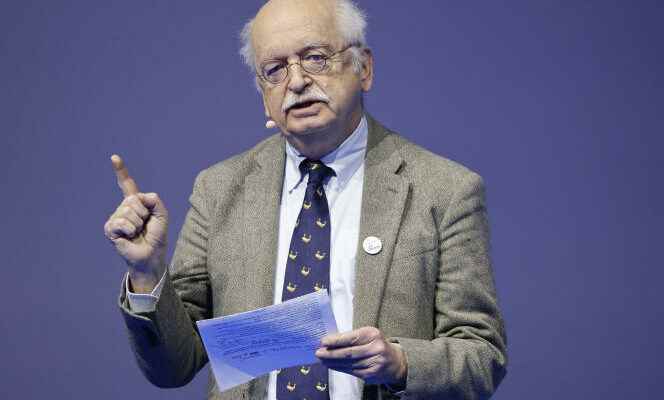Less than two months ago, Academician Erik Orsenna was invited to lunch at the Ministry of Health by Agnès Firmin Le Bodo. The minister delegate in charge of territorial organization and the health professions has long been elected to the town hall of Le Havre (Seine-Maritime). She shares with the writer-navigator the love of the open sea. The subject that brings them together that day is not the sea, but death.
The minister proposes to the “immortal” Orsenna – he is a member of the French Academy – to design a lexicon of end-of-life words. The glossary must be delivered before the end of the citizens’ convention on the end of life, which will deliver an opinion in March on the legalization or not of assisted suicide or euthanasia. Erik Orsenna takes up the gauntlet. But suggests that nine other personalities accompany him in this lexical work. “The deliverable will be delivered in February”assures M.me Firmin Le Bodo.
Why such a lexicon? To achieve a national debate “appeased”according to Emmanuel Macron’s expression on the end of life, “we needed definitions of certain words accessible and understandable to all French people “explains the Minister Delegate. Hence the idea of asking specialists to specify “the meaning of expressions such as ‘assisted suicide’, ‘active aid in dying’, ‘deep and continuous sedation'”states Agnès Firmin Le Bodo.
The think tank met for the first time on 12 December. Alongside Erik Orsenna sits the writer and sociologist Noëlle Châtelet, author of The Last Lesson (Threshold, 2004); the psychologist and psychoanalyst Françoise Ellien, specialist in palliative care; sociologist Philippe Bataille, director of studies at the Ecole des Hautes Etudes en Sciences Sociales; Elsa Walter, author of the book To you, I can tell. Listen to the final words (Flammarion, 352 pages, 18 euros). Volunteer with end-of-life patients, Mme Walter is a spokesperson for the think tank.
There are also scientists: Franck Chauvin, professor of public health, cancer prevention specialist and president of the High Council for Public Health; Alexandra Fourcade, doctor, elected municipal and departmental representative of Hauts-de-Seine; Marc Magnet, former head of a palliative care unit in Lyon.
“Pluralism of opinions”
The group also has two lawyers: François Stasse, State Councillor, former Director General of the Assistance Publique-Hôpitaux de Paris (AP-HP), from 1989 to 1993, specialist in the subject of the end of life, as well as Martine Lombard, professor emeritus of public law at the University of Paris-II-Panthéon-Assas, author of The Last Request. Help to die peacefully, a freedom within our reach (Liana Levi, 126 pages, 14 euros).
You have 53.75% of this article left to read. The following is for subscribers only.
